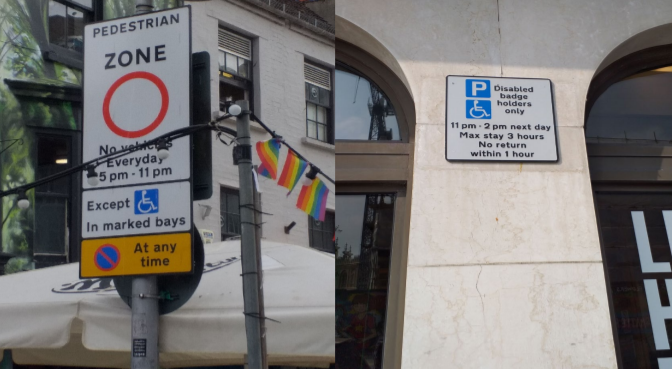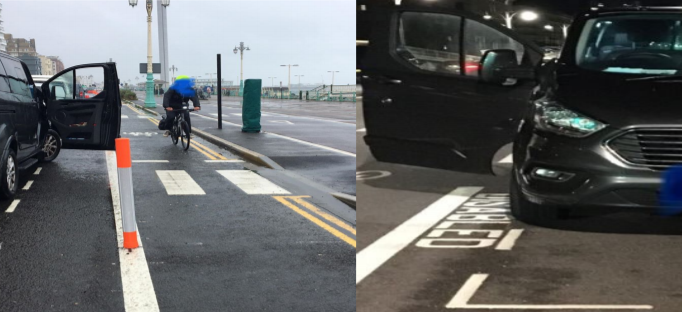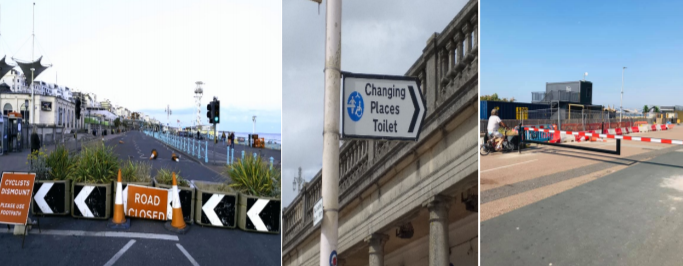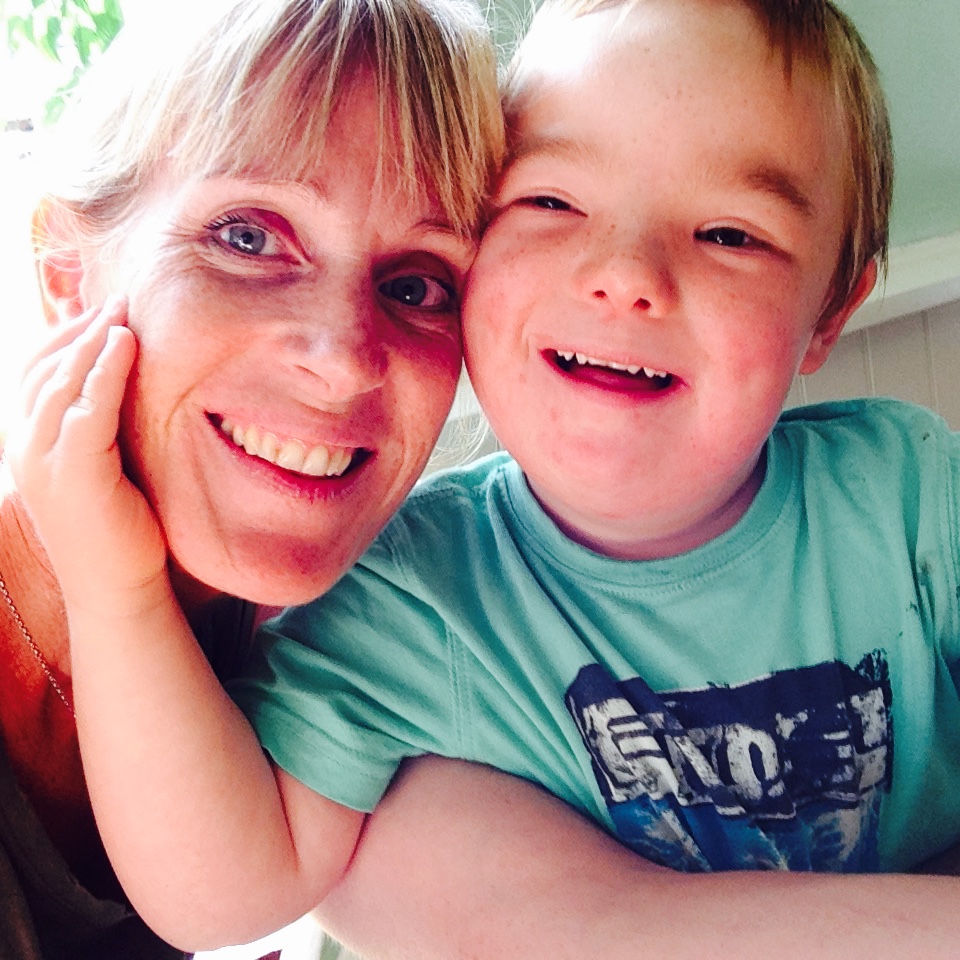Since the start of the coronavirus pandemic, the city’s movement infrastructure has changed considerably as a result of the coronavirus Urgent Response Transport Action Plan.
The schemes imposed have severely disrupted parking and access for the blue badge community and extended our lockdown hell while protecting other people’s essential journeys, alternative travel and safer spaces.
Members of BADGE (Brighton Access for Disabled Groups Everywhere) generally aren’t the “disabled people who can cycle or walk instead” kind.
Our cars represent our human freedom.
The eligibility threshold for a blue badge is extremely high.
The Covid-19 Update to the Traffic Management Act 2004 (published on Saturday 23 May 2020) stated: “The public sector equality duty still applies and, in making any changes, authorities must consider the needs of disabled people.
“Accessibility requirements apply to temporary measures as they do to permanent ones.”
Bids from Brighton and Hove City Council for government funding, referred to as tranche 1 bids, ticked the box for equalities consultation – a requirement of the bid. Tranche 2 mentions equalities impact assessments (EIAs) for individual schemes.
But none of our city’s disability stakeholders were consulted on the action plan between May and August. No EIAs have been published.
At our first and only meeting with Councillor Pete West on Tuesday 18 August, officers admitted that there had been no disability-specific active travel consultation.
Councillor Steph Powell, who chairs the Tourism, Equalities, Communities and Culture Committee, tasked officers to urgently review and amend all existing TROs (traffic regulation orders) in line with the public sector equality duty and resolve all issues.

Five meetings later, we are still deflected to the “rolling survey” or, at best, officers saying they’ll “have a look at it but we’ll have to wait until committee”.
The report to the council’s Environment, Transport and Sustainability Committee meeting today (Tuesday 29 September) said that the working groups considered negative or disproportionate impacts of schemes. That’s not BADGE’s experience.
However, these meetings with experienced bike enthusiasts will undoubtedly contribute to a good cycle network design.

The report stated that all efforts were being made to prevent adverse impact and to protect access for people with disabilities and mobility impairments.
These schemes have authorised removal of the largest block of blue badge parking in Brighton, reduced the overall number of bays, controlled access to continence facilities, time-limited our presence, imposed afternoon and evening curfews and relocated us as far as three-quarters of a mile away from the epicentre.
Of particular concern are the safety issues of the seven seafront bays which are too short for ramps, too narrow for wheelchairs and too close to cyclists as they whizz past.
Our safety concerns are now on hold until Tuesday 24 November. We find this unacceptable. Don’t you?

To be clear, the blue badge community has been moved out of the way and are now less able or unable to access key zones so that other people without severe impairments, which limit mobility, can have more access.
In August, the bus company flagged timetable delays due to the huge tailbacks. Officers rapidly amended the TRO and removed a segment of the seafront cycle lane within six days flat.
It’s a stark contrast to our experience. Is this discrimination?
We (and others) have additionally raised concerns directly with the council’s Equalities Team about the discriminatory nature of the survey.
Here’s what some BADGE members said
- “Three hours is too tight to get out, get there, get back, get in and go. We go to Worthing instead now.”
- “I’m severely sight impaired and clinically extremely vulnerable. I hadn’t been out for six months. Layout changes have disrupted where we can park and my orientation. I’ve never been dependent on people before and now I am.”
- “My wife has a terminal condition. Her one luxury was to have a treatment followed by early supper at a restaurant on the ‘flat’. We can’t do that any more. I just find the whole thing so dispiriting.”
- “Been shielding, lost my carer and emerged to find large areas closed off to me. Being among others was the only prospect keeping me going.”
- “There’s no way I can get my child who has no safety sense out of our car in those seafront bays. It’s an accident waiting to happen.”
- “We aren’t ever going to be near ‘normal’ any more. No more stops to just pull in to get a cup of tea and watch the sea. I cried. We feel unwanted in this town.”
- “I feel like a second-class citizen, deeply upset at the prospect of being trapped in my own home.”
…
At an 11th hour meeting on yesterday (Monday 28 September) with Councillor Amy Heley, who chairs the council’s Environment, Transport and Sustainability Committee, and some of her colleagues, we yet again set out all the issues, put solutions on the table and they agreed to act with urgency.
Now we’ve shown you the vital aid that is the blue badge. We’ve highlighted the discriminatory nature of the Covid Action Plan.
We request
- immediate reassessment of all existing and planned TROs
- reinstatement and increase of parking to compensate for the lost back up of “pay and display” options
- reinstatement of long-term parking
- removal of curfews
- equitable treatment without prejudice
…
We need a “disability equalities framework for co-production” to ensure that in future “access and equalities considerations are at the heart of all city schemes”.
This is the second time in 12 months that BADGE co-founder Rob Arbery and I have had to form an action group and bring a deputation questioning equalities breaches arising from lack of consultation or “due regard”.
BADGE therefore supports the motion asking for an independent investigation into what our members believe to be equalities breaches.
Tomorrow (Wednesday 30 September) will be day 163 of these ongoing discriminations.
We need our cars. We can’t park on a promise.
Pippa Hodge is a founder member of BADGE (Brighton Access for Disabled Groups Everywhere).
This is an edited version of her speech to the “virtual” meeting of the Environment, Transport and Sustainability Committee today (Tuesday 29 September).










Perfectly said, I heard plenty of apologies at the meeting let’s see some action now. This is so shameful for the city.
It is honest of BADGE to admit that it doesn’t generally have members who can walk or cycle. Of course, this means that it will tend not to represent disabled people who can or want to walk or cycle.
This is a great pity because one third (33%) of disabled people in Britain’s cities say they would like to start cycling – if the roads are changed to help them:
“…people from these demographic groups face systematic barriers to either beginning to cycle, or to cycling more, including:
• An association that cycling isn’t an activity for people like ‘them’.
• Heightened safety concerns when sharing road space with motor vehicles.
•Lack of seamless and dedicated cycle infrastructure to connect people to everyday destinations suitable for different types of cycles.”
https://www.sustrans.org.uk/our-blog/news/2019/june/one-third-of-disabled-people-in-uk-cities-would-like-to-start-cycling/
BADGE is not asking for the removal of the cycle lanes. They are asking for usable alternatives for the blue badge parking and to replace the parking that has been lost to the blue badge community. They want the changes to be all inclusive rather than sideline the most vulnerable in the community, which is what has currently happened with the dangerous placement, the inadequate sizings of some of the new disabled bays and the loss of many parking spaces, both specifically blue badge and general parking that badge holders could use when available.
So those with more serious disabilities should be sidelined? That appears to be what you’re saying. There are about 13,000 Blue Badge holders in Brighton and Hove. They have to have the kind of mobility issues that mean cycling isn’t an option, and even walking a short distance can be difficult. But, hey, why not make Brighton a Blue Badge-free zone!
If businessses started taking away access for the disabled the Council would soon be on the case.
Max BADGE have never claimed to represent anyone other than the 13500 blue badge holders, (the clue is in the name). But it’s nice to see your happy to dismiss them and their members and bang on about more able bodied disabled citizens that can cycle. The threshold for a Blue Badge is very high, BADGE members are the most physically impaired in the city. ACCESS needs to be for ALL, get it right and we will have succeeded as a city in a joined up transport infrastructure.
Absolutely agree Max, and Inclusive Cycling representation needs to be brought into the LCWIP ASAP. The Sustrans reports are a great place to start. BADGE is focused on the protected characteristics of the BADGE drivers/users, and we do have some members who also cycle/wheel, but the majority of our members don’t. We totally agree that what is put in via the Tranche 2 Scheme & the LCWIP must be genuinely inclusive. If it’s right for people with physical and learning disabilities, it will be right for everyone! We’ve already flagged via LCWIP consult that some disabled people might want to part drive/part wheel. So this would need parking scope as some of the adapted bikes are big to transport. There is and should be room for everyone, that’s what a successful plan delivers. And that requires timely and genuinely open minded consultation. We’ll get there!
BADGE is not asking for the removal of the cycle lanes. They are asking for usable alternatives for the blue badge parking and to replace the parking that has been lost to the blue badge community. They want the changes to be all inclusive rather than sideline the most vulnerable in the community, which is what has currently happened with the dangerous placement, the inadequate sizings of some of the new disabled bays and the loss of many parking spaces, both specifically blue badge and general parking that badge holders could use when available.
Couldn’t have said it better PeeJay. PRO access not anti cycle lane. Some Greens seem to struggle to grasp this.
Councils are subject to the public sector equality duty and must, in the exercise of their functions, have due regard to the need to:
*Eliminate unlawful discrimination, harassment and victimisation and other conduct prohibited by the Act.
*Advance equality of opportunity between people who share a protected characteristic and those who do not.
*Foster good relations between people who share a protected characteristic and those who do not.
The council fell woefully short with the cycle lanes and the associated loss of disabled parking bays as well as the general parking bays which were also used by people with disabilities.
Incidentally, the law also says that having due regard for advancing equality involves:
*Removing or minimising disadvantages suffered by people due to their protected characteristics.
*Taking steps to meet the needs of people from protected groups where these are different from the needs of other people.
*Encouraging people from protected groups to participate in public life or in other activities where their participation is disproportionately low.
The council seems willing to respond to the commercial needs of the bus company and the vocal lobbying of cyclists yet it’s unwilling to obey the law and may have made a fraudulent application for government funding.